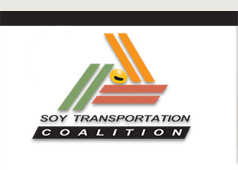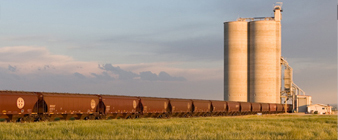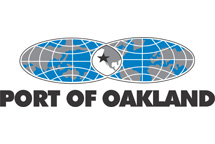 |
 |
|
| eNews • December 2011 | ||
| Promoting a Cost-Effective, Reliable and Competitive Transportation System |
||
 Port of Oakland girds for blockade
Port of Oakland girds for blockade
The Port of Oakland is girding for another blockade on Dec. 12, six weeks after a Nov. 2 general strike coordinated by Occupy Oakland shut down the port overnight.
This time, however, the planned Dec. 12 economic action is expected to affect all West Coast ports as Occupy movements in Los Angeles, San Diego, Oakland, Portland, Seattle and Tacoma have so far voted to join the demonstration.
The International Longshore and Warehouse Union is not sanctioning the strike, but history has shown that will not stop individual members from supporting the blockade by refusing to work. Occupy organizers hope that union members will not cross picket lines.
Between 7,000 and 10,000 people marched on the Port of Oakland the afternoon of Nov. 2, clogging the entrances and roadways. Although shipping terminals closed down early, some truckers were blocked by the sea of people as they tried to drive out.
The action extended into the evening and effectively shut down the port for the last two shifts of the day when dockworkers either couldn't get to work or stayed away to support the strike.
The Nov. 2 strike, coupled with a work stoppage by longshoremen at the SSA and Trapac terminals due to safety concerns over refrigerated shipping containers, created a backlog of cargo that took days to resolve.
"The union is not supporting it, is not coordinating the action with Occupy Oakland," said Richard Mead, president of ILWU, Local 10. "We think that working people aren't getting a fair share and we support the principal of Occupy Wall Street, but we don't support shutting down our own jobs."
Isaac Kos-Read, director of external affairs at the Port of Oakland, said the port is working with all its partners -- business, government and law enforcement -- to prevent any disruption in the flow of goods to and from the port.
"Disrupting operations will only hurt working people, here and throughout the state and country," Kos-Read said.
"This is an important time of year for us, a big time of year for exports. We are the export gateway for Northern California ... and this year is a bumper crop for almonds."
Kos-Read said that the frequent shut downs are a concern for companies that already do business with the port as well as those companies the port is trying to woo. Aside from the short-term impacts, the blockades and strikes could have lasting economic impacts for employers and workers throughout the region if companies choose other ports to move their goods, Kos-Read said.
"We want people to understand the impact on working people and our ability to create jobs," he said. "The port is where the 99 percent work."
Barucha Peller, a member of the Occupy Oakland blockade assembly, called that a "right-wing analysis.
"Everyone from rank-and-file longshoremen to the port truckers realize we all have to make a sacrifice," she said. "When we withdraw our labor, we make a (dent) in the 1 percent. Economic boycotts are very effective. The occupation movement is moving into a larger and more coherent strategy of how to disrupt the profits of the 1 percent."
The Dec. 12 action was hatched at Occupy Los Angeles when it voted to shut down SSA terminals at the Port of Los Angeles and Long Beach in solidarity with truckers who were fired when they tried to unionize, Peller said.
The blockade quickly spread up and down the West Coast. Peller said Occupy Oakland joined the blockade in solidarity with Los Angeles and with ILWU members in Longview, Wash., who are battling against a plan to use nonunion labor at a new grain facility owned by EGT. She also said the West Coast blockade was in response to the coordinated attacks against Occupy camps around the country.
The blockade will begin with a 3 p.m. rally at Frank H. Ogawa Plaza, followed by a 4 p.m. march to the Port of Oakland, Peller said. A separate group will gather at the West Oakland BART station at 5 p.m. before marching on the port, she said.
Peller said the movement expects thousands of people to participate in the action, including many who hoped to replicate their experience on Nov. 2. She warned that any disruption or use of violence by law enforcement in any of the cities would be cause to extend the blockades.
Source: Oakland Tribune
Soy Transportation Coalition |
|
